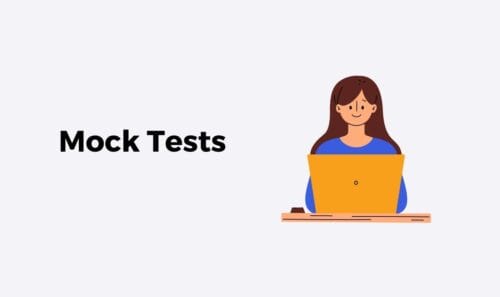How to Improve Reading Comprehension for MBA Entrance Exams: A Complete Guide
Reading Comprehension (RC) is one of the most critical sections in MBA entrance exams like CAT, XAT, IIFT, NMAT, and others. It tests a candidate’s ability to understand complex ideas, infer meanings, and analyze arguments, all within a limited amount of time. For many aspirants, RC is a challenging section due to the dense language, complex themes, and time constraints. In this article, we’ll take a deep dive into how you can improve your reading comprehension skills, crack this section in MBA entrance exams, and secure a higher score.
Why is Reading Comprehension Important?
Reading Comprehension questions carry a significant weightage in the Verbal Ability and Reading Comprehension (VARC) section of most MBA entrance exams. For instance, in CAT, RC alone accounts for nearly 70% of the VARC section. Other exams, such as XAT and IIFT, also place heavy emphasis on this skill.
Key Challenges in Reading Comprehension
Before we discuss how to improve, let’s identify the major challenges that students face while tackling RC passages in MBA exams:
- Complex Passages: MBA exam passages often cover difficult themes such as philosophy, economics, sociology, and literature, which can be hard to grasp.
- Time Management: You are expected to read long passages and answer multiple questions in a limited time. Balancing speed with accuracy is tough.
- Inference-Based Questions: Many questions require you to go beyond surface-level understanding and infer the author’s tone, intent, or argument. These are tricky and often lead to confusion.
- Diverse Topics: The range of topics, from abstract themes to technical subjects, demands strong vocabulary and the ability to comprehend diverse subjects quickly.
Step-by-Step Guide to Improve Reading Comprehension for MBA Exams
1. Build a Strong Reading Habit
A robust reading habit is foundational to mastering RC. Since passages in MBA exams are often taken from articles, essays, and academic journals, you should regularly read high-quality sources that mirror the style and complexity of RC passages.
What to Read:
- Newspapers and Editorials: Read editorials from The Hindu, The Indian Express, The Guardian, and The New York Times. These will expose you to diverse opinions and complex sentence structures.
- Magazines: Publications like The Economist, The Atlantic, Harvard Business Review, and National Geographic cover a wide range of topics — business, economics, environment, and politics — that can help you practice different types of RC themes.
- Non-fiction Books: Reading non-fiction books on history, economics, and sociology improves your comprehension skills, as these texts often resemble MBA exam RC passages.
- Online Resources: Websites like Project Syndicate, Foreign Affairs, and Aeon offer essays and opinion pieces that challenge your reading skills and offer the depth required for MBA-level RC passages.
How Much to Read:
Aim to read at least one high-quality article or editorial every day. This will not only build your speed but also help you familiarize yourself with complex language, arguments, and ideas.
2. Learn to Skim and Scan
Given the time pressure in MBA entrance exams, you need to learn how to skim and scan efficiently. Skimming helps you get the gist of the passage quickly, while scanning enables you to find specific information or keywords related to the questions.
How to Skim:
- Focus on the First and Last Sentences of Paragraphs: Often, the central idea of a paragraph is presented in the first sentence, and the concluding sentence might sum it up. Paying extra attention to these will help you capture the main idea quickly.
- Identify Transition Words: Words like “however,” “therefore,” “although,” and “in conclusion” often signal a shift in the argument. Spotting these helps you understand the logical flow of the passage.
How to Scan:
- Search for Keywords: When scanning, look for keywords related to the questions, such as names, dates, or specific terms. This will help you locate the relevant section of the passage faster.
- Use the Process of Elimination: Sometimes, it’s easier to eliminate incorrect answers by scanning for keywords in the passage, especially in factual or detail-based questions.
3. Master the Art of Active Reading
Passive reading won’t help you in cracking RC questions. You need to become an active reader by engaging with the text as you read. This means anticipating questions, making mental notes, and critically evaluating the passage.
Active Reading Techniques:
- Predict Possible Questions: As you read, try to predict what questions might be asked. Is there an argument being made? Is the author supporting or criticizing a particular view? This will help you focus on the most important parts of the passage.
- Highlight Key Points: Although you can’t physically highlight in the exam, develop the habit of mentally noting the key ideas, arguments, and supporting evidence while practicing.
- Summarize as You Go: After reading each paragraph, quickly summarize the main point in your mind. This will improve your overall understanding and retention.
4. Expand Your Vocabulary
A strong vocabulary is essential for RC passages, especially when dealing with abstract topics or technical jargon. You need to be comfortable with high-level language to avoid getting stuck on difficult words in the exam.
How to Improve Vocabulary:
- Learn New Words Every Day: Commit to learning 5-10 new words daily. Focus on meaning, usage, and synonyms.
- Use Vocabulary Apps: Tools like Memrise, Anki, or Word Power Made Easy can help you learn and retain new words more effectively.
- Read Difficult Texts: Choose texts that challenge your vocabulary, such as essays from The Atlantic or non-fiction books by authors like Malcolm Gladwell or Yuval Noah Harari.
5. Practice with Mock RC Passages
No amount of theoretical preparation can substitute actual practice. Solving RC practice questions is the best way to prepare yourself for the exam. Mock tests help you apply the strategies you’ve learned and allow you to monitor your progress.
How to Practice RC Passages:
- Start with Easy Passages: Begin by solving easier RC passages, focusing on getting the structure and gist of the passage.
- Move to Tougher Passages: Gradually increase the difficulty level by practicing tougher passages with dense language and complex ideas.
- Track Your Speed: Time yourself while solving RCs to ensure you’re reading and answering questions within the time limit. Aim to spend 6-8 minutes per passage (including reading and answering questions).
Practice Resources:
- Past Year Papers: Solve RCs from past CAT, XAT, and other MBA entrance exam papers to familiarize yourself with the exam pattern.
- Online RC Practice Sets: Websites like Gradeup, Testbook, and Pagalguy offer free and paid RC mock tests that you can use for practice.
- Coaching Material: Use study material from reputed coaching institutes, which provide sectional RC tests with detailed solutions.
6. Understand Common RC Question Types
MBA entrance exams generally feature certain common types of RC questions. Understanding these types will help you structure your preparation more effectively.
Common Question Types:
- Main Idea Questions: These ask you to identify the central idea or theme of the passage.
- Tip: Pay close attention to the introduction and conclusion of the passage to identify the author’s main point.
- Inference-Based Questions: These require you to go beyond what is stated and draw conclusions from the given information.
- Tip: Look for subtle hints in the passage that guide you toward an inferred meaning. Avoid extreme or unsupported inferences.
- Tone and Attitude Questions: These questions ask about the author’s tone or attitude toward the subject.
- Tip: Words like “critical,” “neutral,” “optimistic,” or “pessimistic” are often used to describe the tone. Focus on adjectives used in the passage to infer the tone.
- Detail-Based Questions: These are straightforward questions that ask about specific facts or details mentioned in the passage.
- Tip: Skim through the passage to locate the section where the detail is mentioned and confirm it matches the question.
7. Review and Analyze Your Mistakes
After completing each RC practice test or passage, spend time reviewing your errors. Identifying why you got a question wrong will help you avoid repeating the same mistakes.
Analyze Errors:
- Was the Mistake Due to a Misunderstood Passage?: If so, reread the passage carefully and understand where you misinterpreted the content.
- Did You Misinterpret a Question?: Sometimes questions are tricky. Understand how you could have approached the question differently.
- Were You Too Slow?: If time was a problem, focus on speed-reading techniques and practice managing your time better.
Conclusion
Improving reading comprehension for MBA entrance exams requires consistent effort, strategic reading, and lots of practice. By building a reading habit, mastering skimming and scanning techniques, expanding your vocabulary, and actively practicing with mock tests, you’ll gradually become more comfortable with complex RC passages. This approach will not only help you ace the RC section but also improve your overall verbal ability, giving you a strong edge in cracking MBA entrance exams.
Online CAT Coaching
- Online Classes for CAT Prep
- Printed Study Material
- Online Doubt Solving
CAT Preparation Books
- Comprehensive Study Material
- Online Topic Tests
- Mock CAT Test Series




